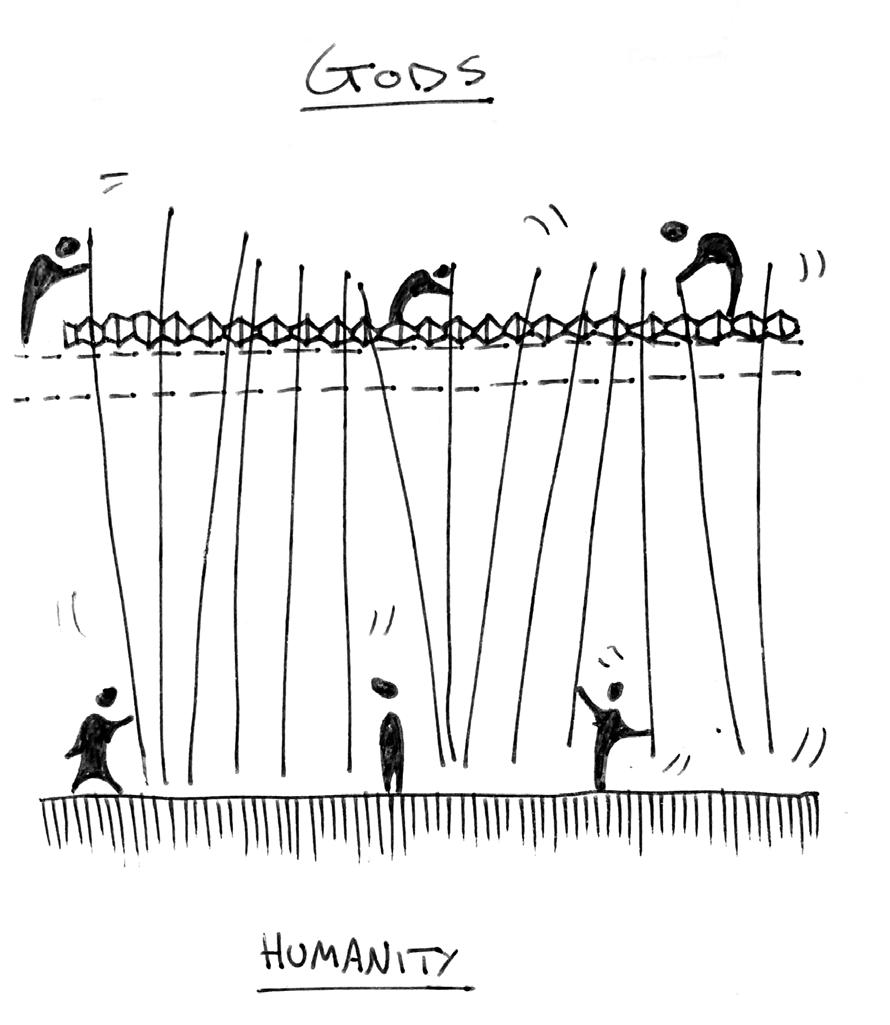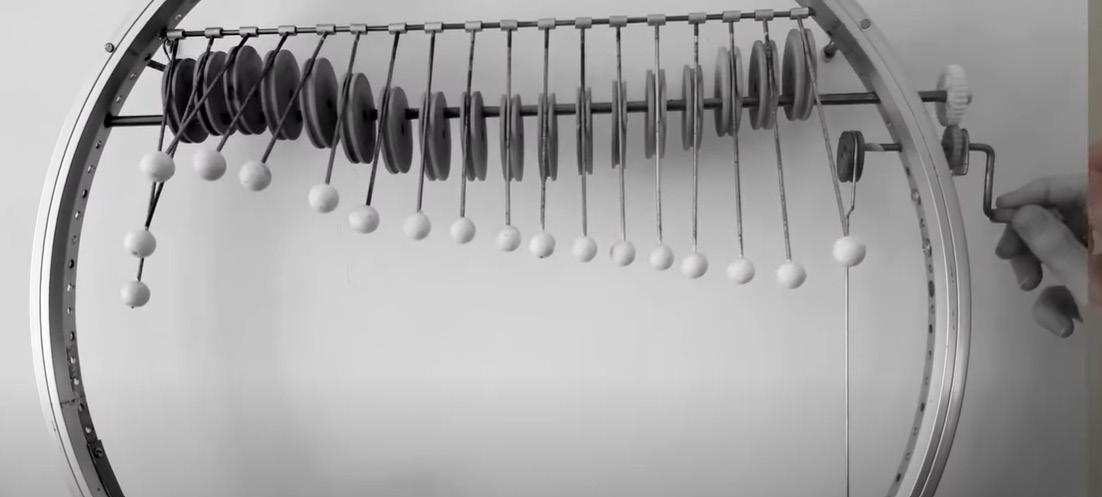
6 minute read
AND THE THEFT OF FIRE
Semester 1 ideation and A2 poster design for machine
Project 1.
Advertisement
Project 2.
Conclusion findings from both projects insta web
Task:
The task for this unit is to choose a fictional character from mythology (e.g. Prometheus), use Artificial intelligence software to develop the allegory of the story. Then using the results of the allegory generated by AI to inform and design a mechanism that can be installed and exhibited at Swinburne.
Throughout the design process prototype models and posters are required before finally producing the final physical design.
In this projects case the chosen mythology character was Prometheus from Greek mythology, who stole fire from the gods to give it to the humans and as a result was punished for disobeying Zeus.
This precedent helped inform the self correcting cams that push each lever. They all combine to produce a wave like motion.

Additionally it helped inspire the opportunity to have the mechanism potentially hand cranked to increase the interaction and experience with the users.
“Prometheus from Greek mythology in pain”
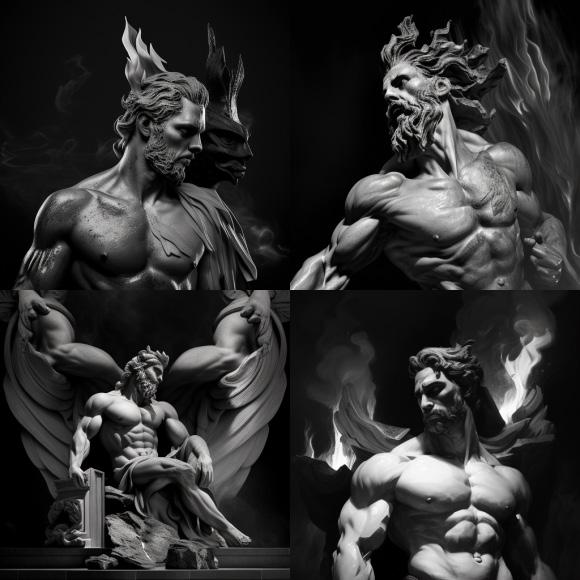
“Ancient Greek people mourning”
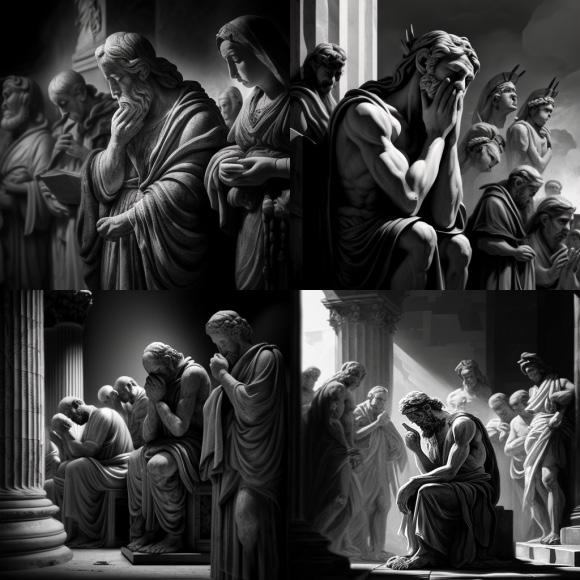
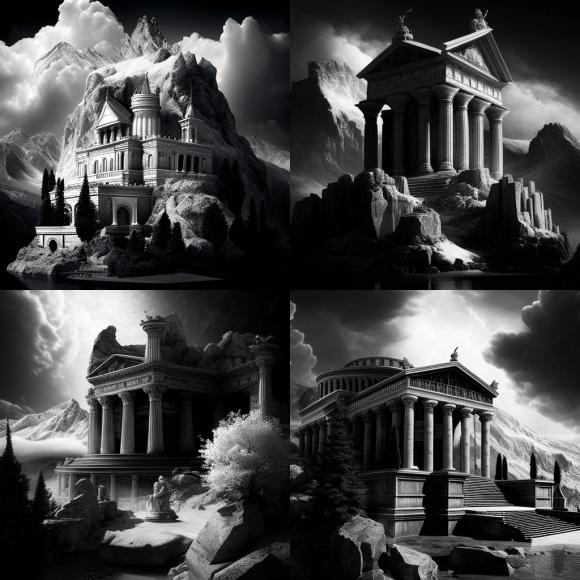
“Zeus the Greek god”
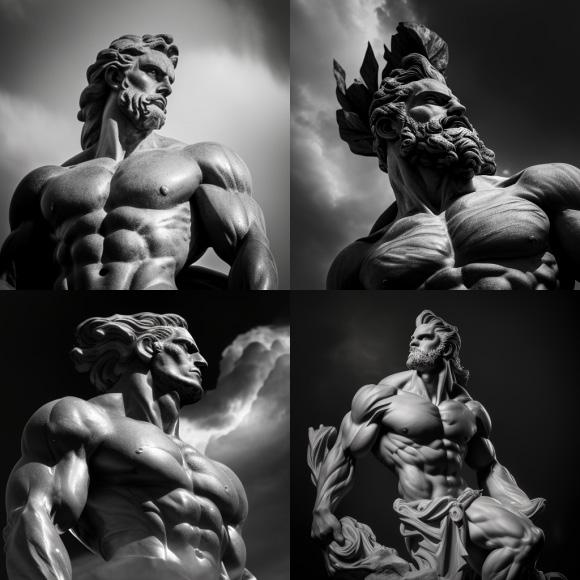
“Ancient Greek people farming”
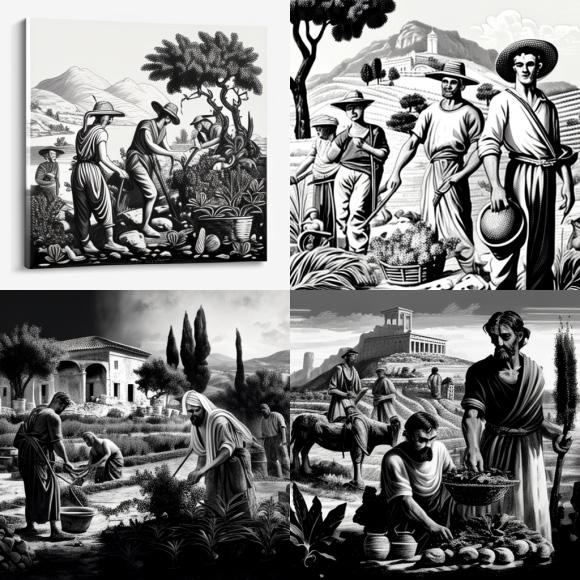
Interesting: When generating images of Prometheus a lot of the generated figures seemed to have wings which in mythology he has never had.
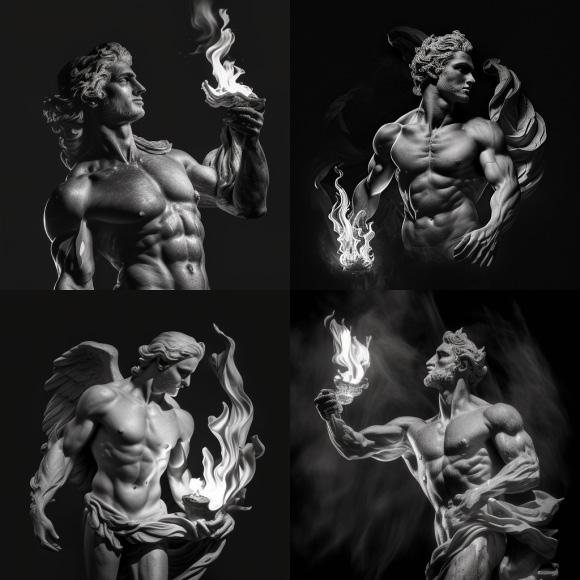
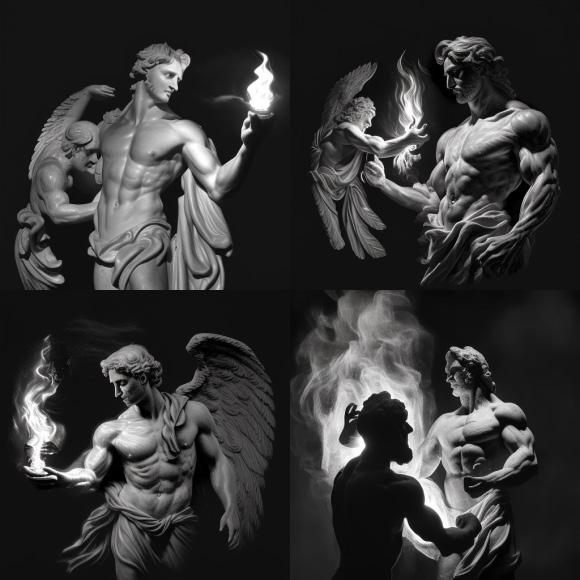
What I believe has happened is AI has taken images particularly when Prometheus is having his liver eaten by an eagle and combined the eagle and Prometheus together as one.
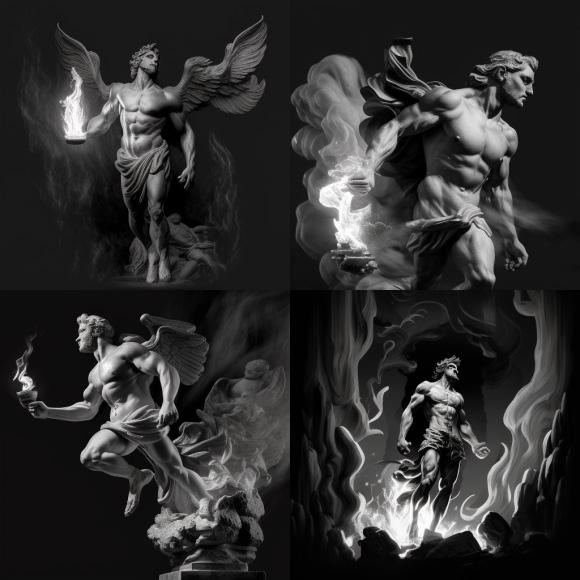
Story:
According to Greek mythology, Prometheus (a Titan) was a son of the Titan Iapetus and the Oceanid Clymene. He was a trickster and a rebel who challenged the authority of Zeus, the king of the gods. Prometheus was a friend of humanity and often sided with mortals against the gods.
The most famous story about Prometheus tells of how Zeus (the king of the gods) had forbidden humans from having fire (representing knowledge, power, and enlightenment), as he feared that it would give them too much power. But Prometheus, who was a friend of humans, saw that they were suffering in the cold and darkness without fire, and he decided to help them.
So, Prometheus climbed to the top of Mount Olympus, where the gods lived, and stole fire from the hearth of the god Hephaestus (the god of fire and craftsmanship). He then brought the fire down to earth and gave it to humans, teaching them how to use it for warmth, light, and cooking.
Zeus was furious when he found out about Prometheus’s theft and punished him severely. He had Prometheus chained to a rock on a mountaintop, where an eagle would come every day and eat his liver. Prometheus was immortal, so his liver grew back each day, and the eagle would come back to eat it again and again.
Prometheus’s story has become a symbol of rebellion against authority, and of the power of human creativity and ingenuity. His theft of fire represents the human desire for knowledge and advancement, even if it means challenging the gods.
Allegory:
The story of Prometheus is often interpreted as a metaphor for the struggle of humanity to overcome ignorance and darkness, and to gain knowledge and enlightenment. It also illustrates the idea that progress often comes at a cost, and that those who seek to change the world may face opposition and persecution from those who wish to maintain the status quo.
It symbolizes the way the gods have treated humanity like puppets.
An inclined treadmill with a magnet on the inside keeping a ball bearing in place suggests a continual desire for enlightenment.

A ball bearing clears the path and allows the smaller following balls (humanity) to ride in its jet stream fig fig 21. The levers seem imposing and could represent the gods.
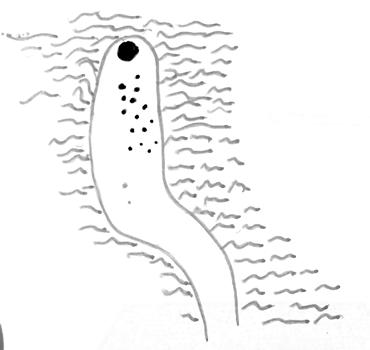
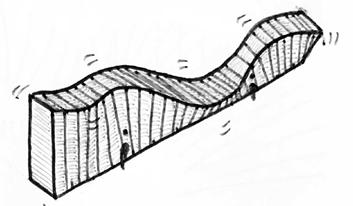
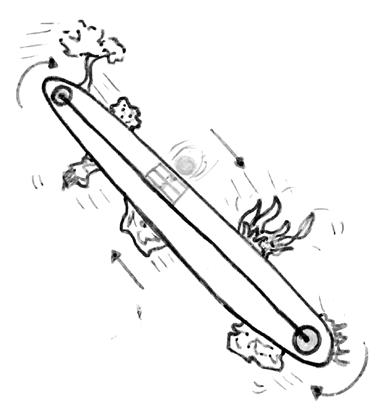
The idea that someone must sacrifice themselves and get wet from a water source in order to help others.
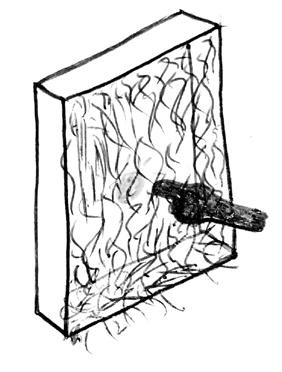
The interior walls of a space move in and out giving users the sense of being claustrophobic and squeezed with no power to stop it.
The walls rotate over the humans giving the sense of imminent doom and powerlessness.
Its about the journey of the subject having make its own path in order to achieve its end-goal.
The idea is that you can visualize “fire“ being moved vertically from the realm of the gods down to humanity.
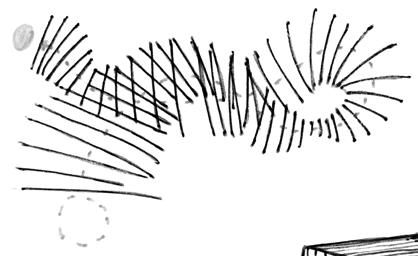
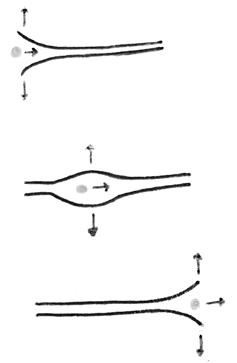
Depicts a cloth-like structure that expands providing space for the users to pass through. It symbolizes the way fire provides personal agency.
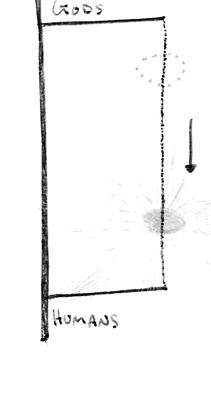
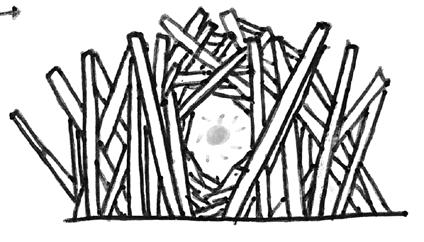
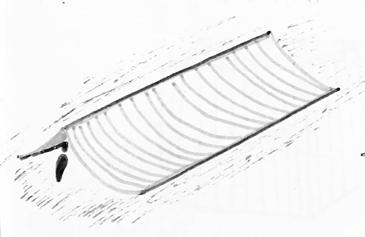

Fire is being caged and held hostage by the gods.
Suggests danger, darkness and evil is being pushed back against by the power of “fire“ and “light“.
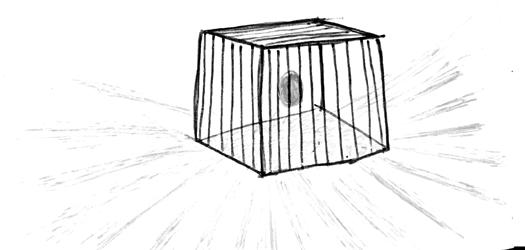
The idea is that the figure is running away from the shadows of the gods up a steep and difficult pathway to safety.
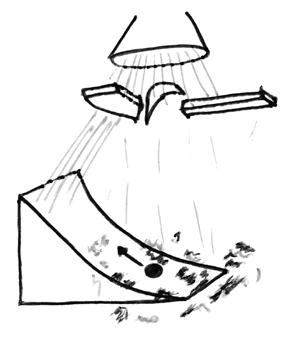
A path is cleared through the sand, a projector is illuminates from above casting a shadow bellow. Humanity carving their way from within the shadow of the gods.
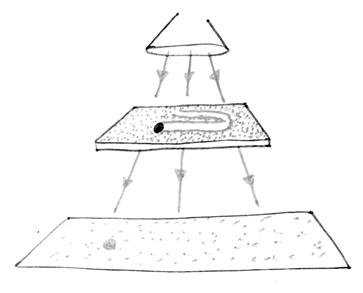
A patch of light is produced amongst all of the darkness. The figure scurries as fast as it can to the safety and knowledge of the light or “fire“.
Symbolizes fire being pulled down to humanity but also at the same time resisted by the gods.
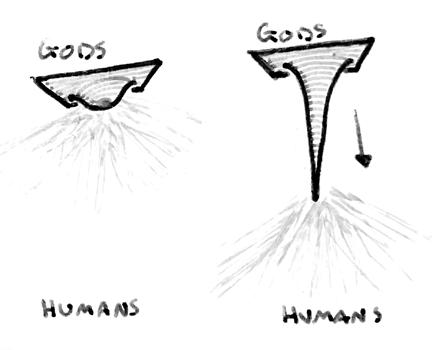
Fire being protected by the gods from falling down to humanity.
Shows fire struggling to be set free whilst being contained within a box.
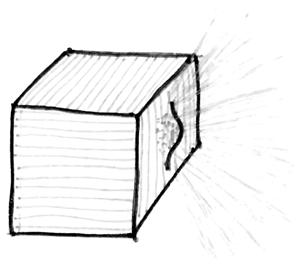


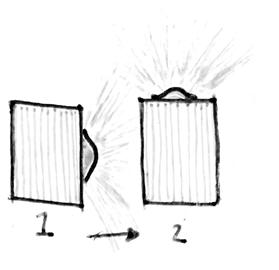


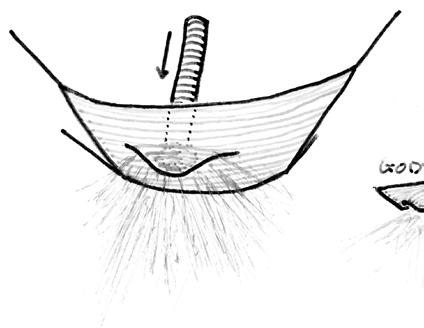
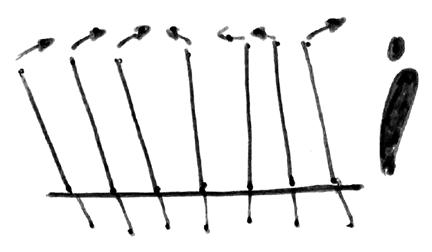
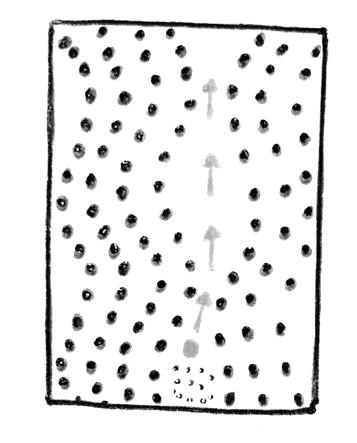
The beacon of light shines from the figure as it passes through the intimidating wave of the gods.
The levers aka the gods are pushed back and overcome by the humans who possess “fire“.
The levers can almost be seen as a dark scary forest from which the figure has to try and escape from.
This shows a top view diagram of the levers moving out of the way as the figure passes through with “fire“.
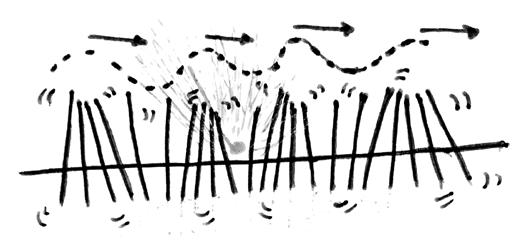

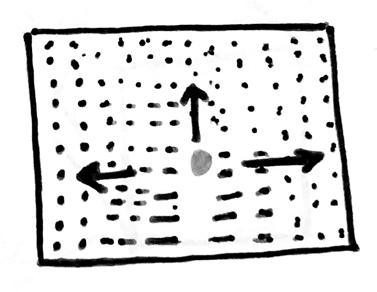
The levers or gods move interdependently with regard to the movement of the figure.
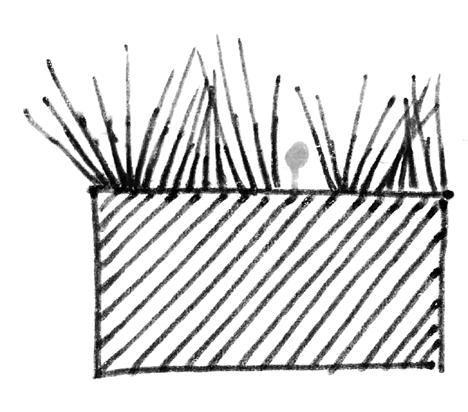

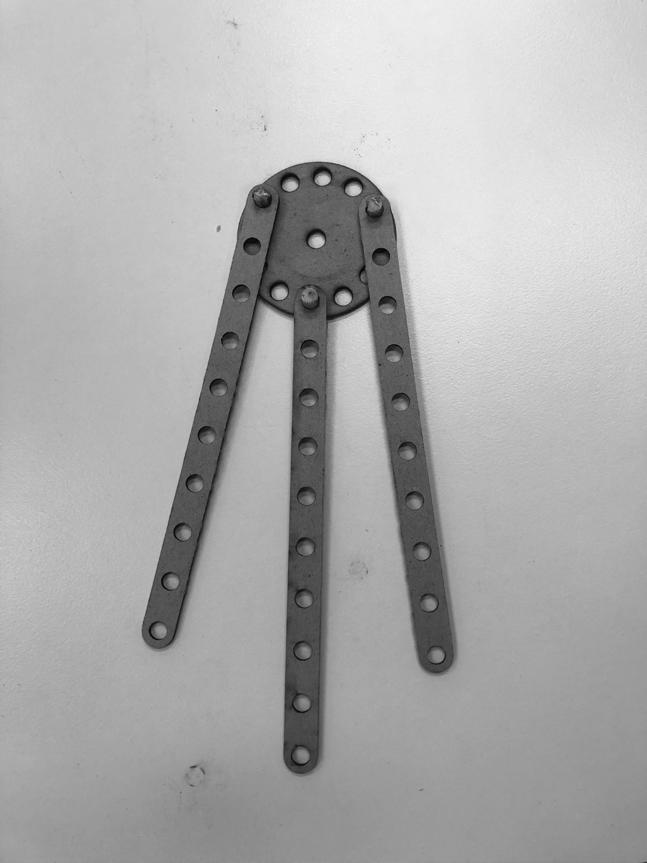
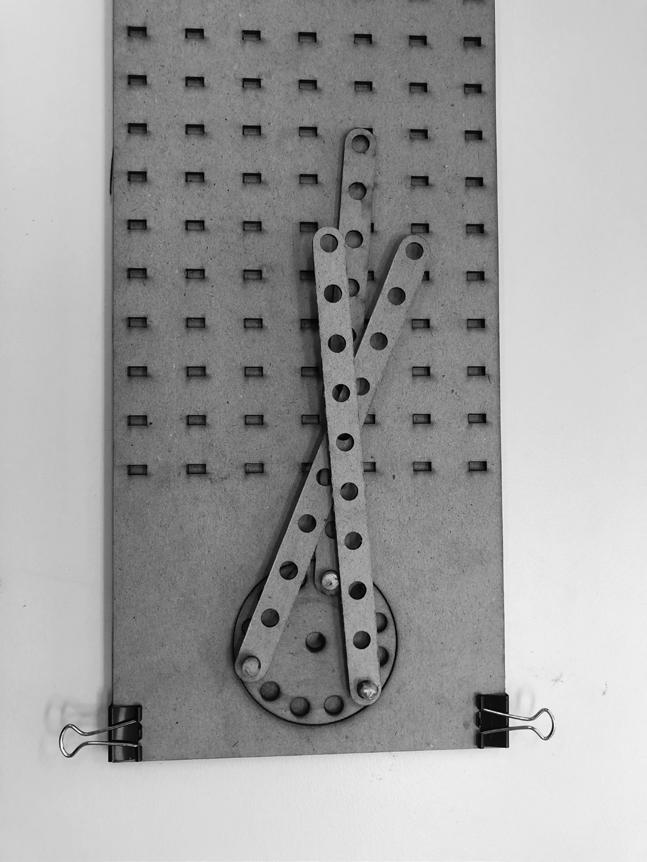
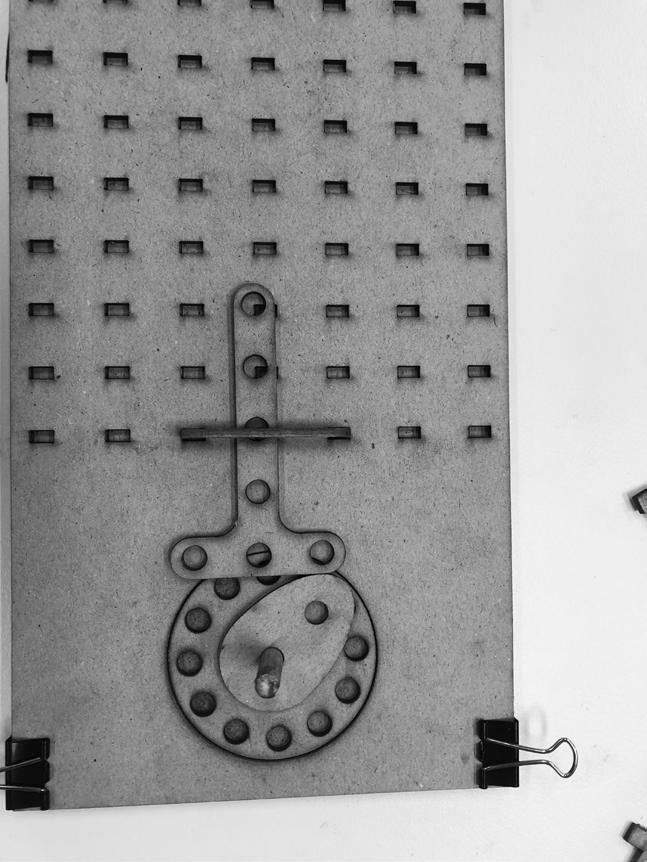
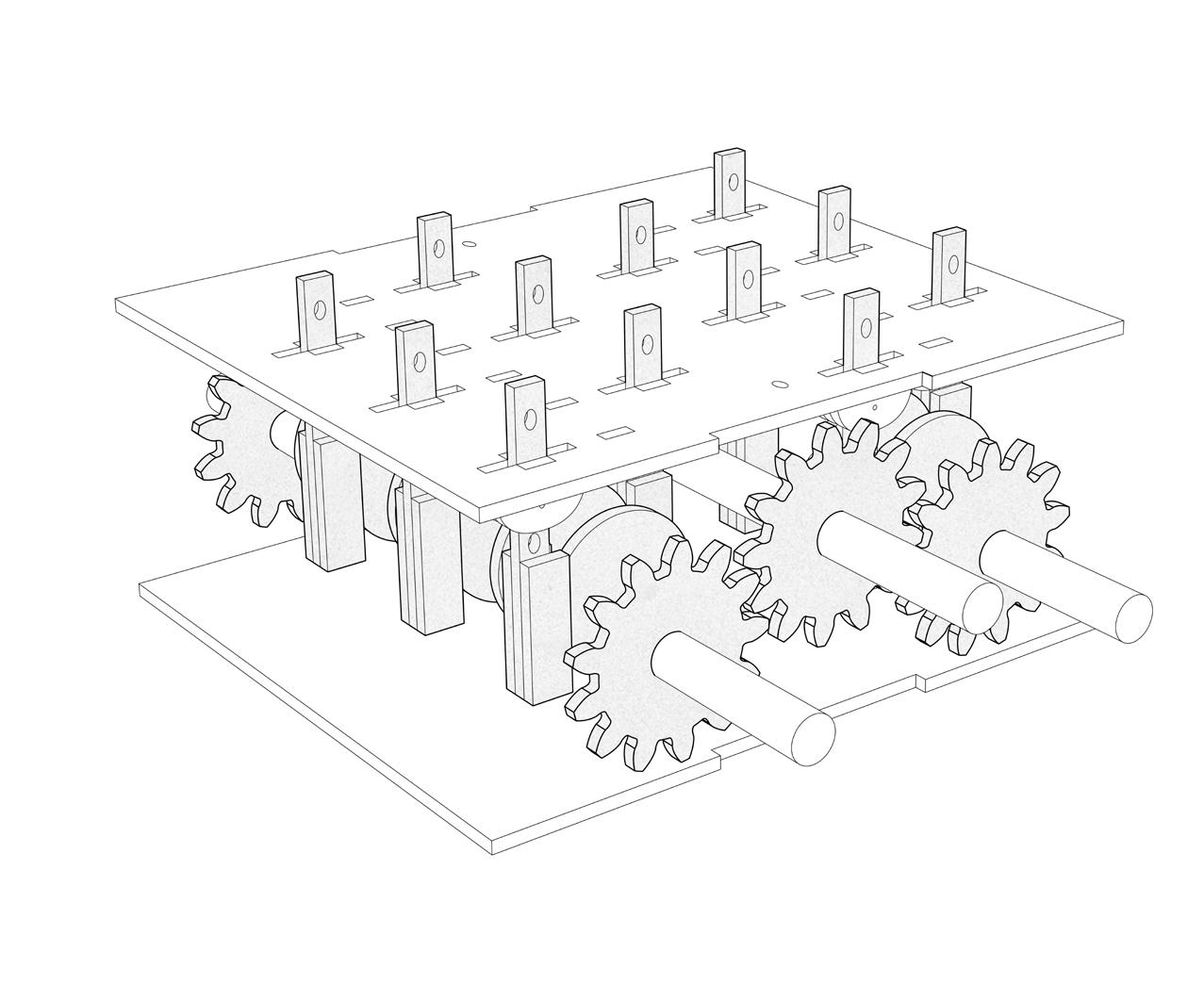
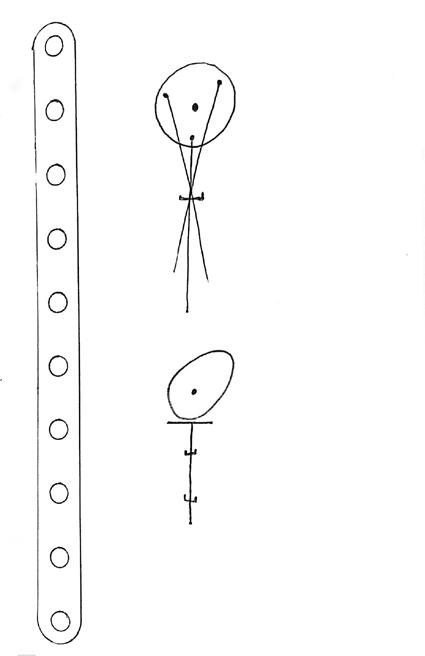
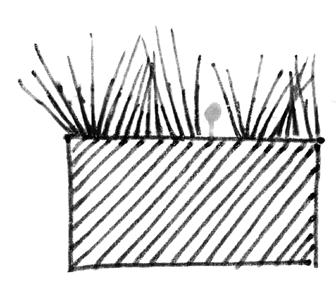
“Prototype 1“ was overly ambitious and a good example of trying to run before you can walk.
Many problems were incurred ranging from cam to lever alignment, complex construction processes and tolerances.
Because tolerances weren’t considered pieces wouldn’t slot into each other meaning that filing of the acrylic pats were required.
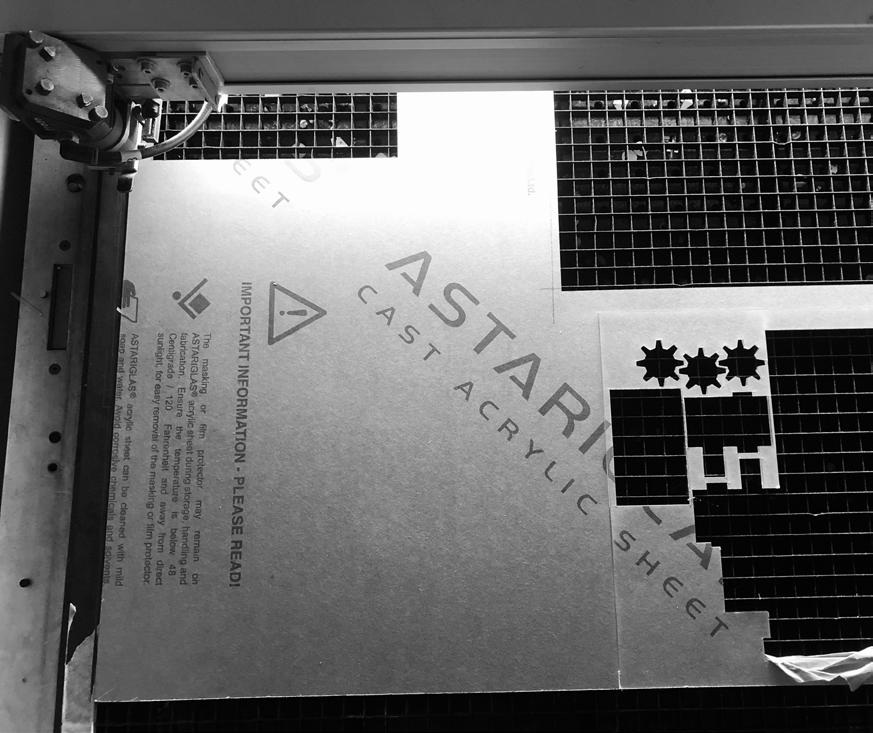
This proved too much of a hassle and the first prototype had to be retired before it was even finished fig 31.
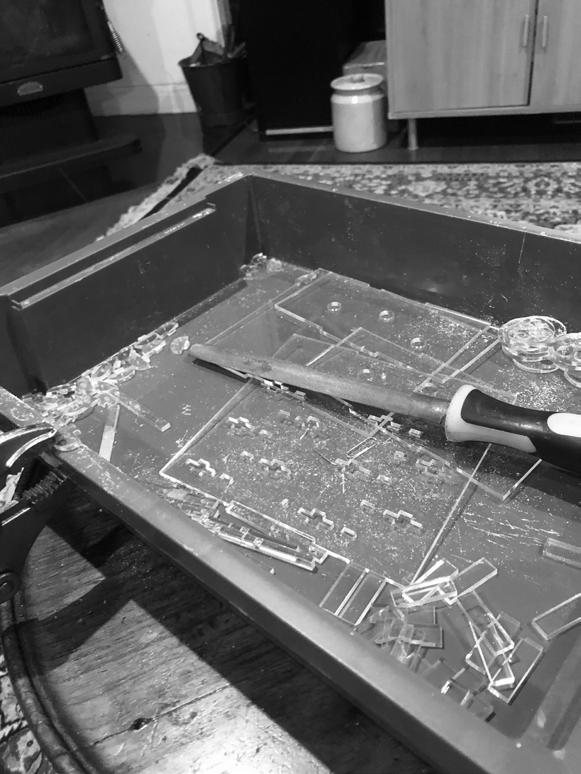
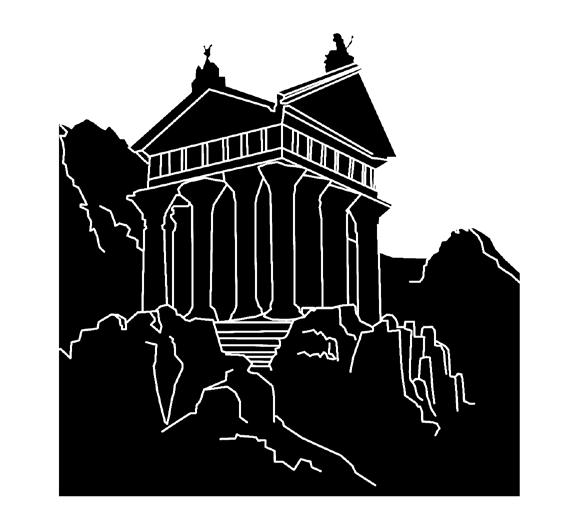
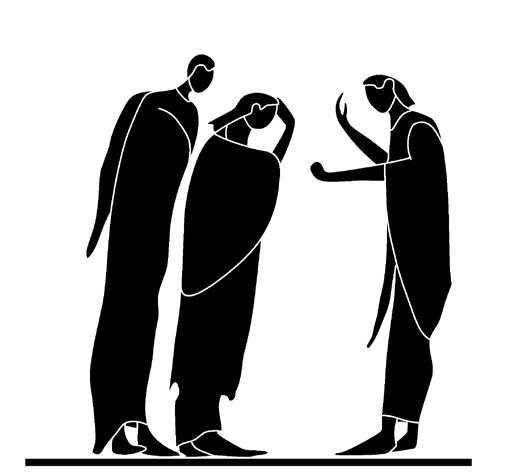
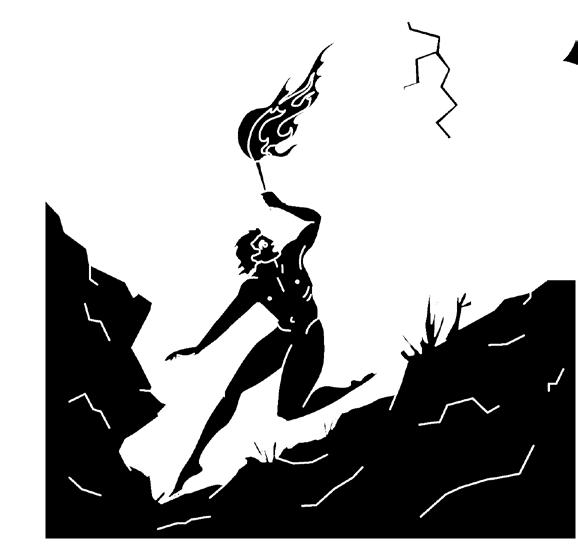
4. With the stolen “fire“, Prometheus gives it to the humans so that they can finally prosper and live without fear.
5. Zeus the king of the gods becomes aware that Prometheus has defied his wishes. This sends Zeus into a furious rage.
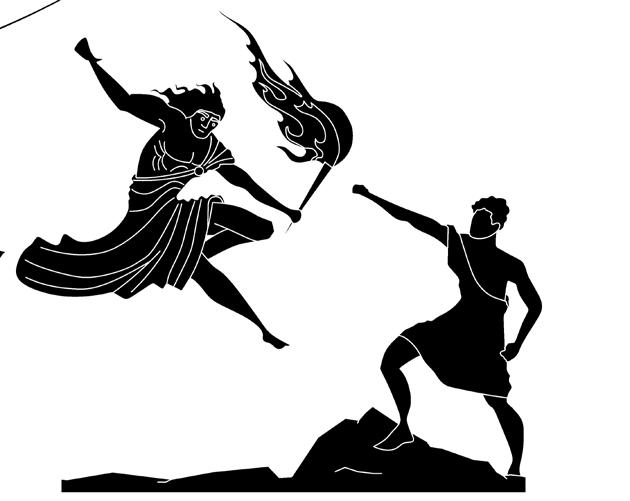
6. As a result Zeus decides to exact revenge by chaining him to a mountain and sending an eagle to eat his immortal liver every day.
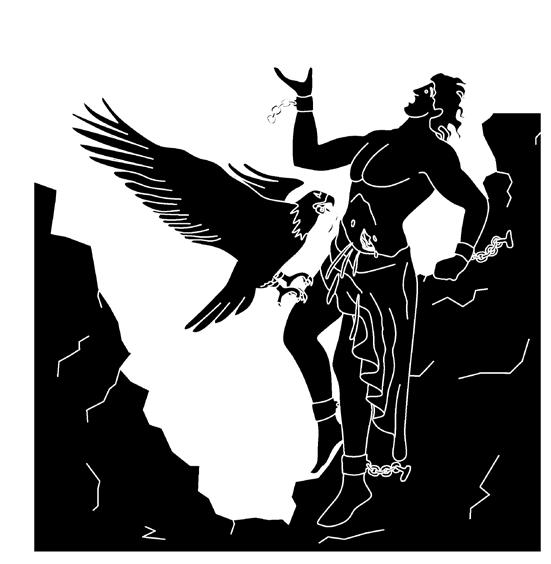
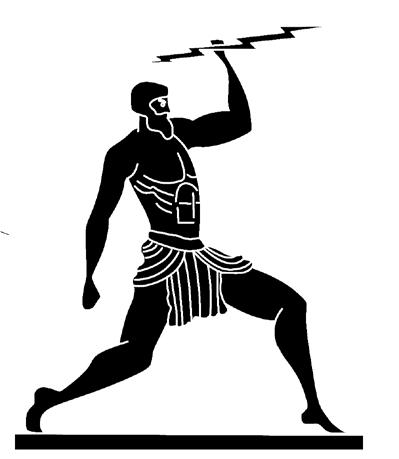
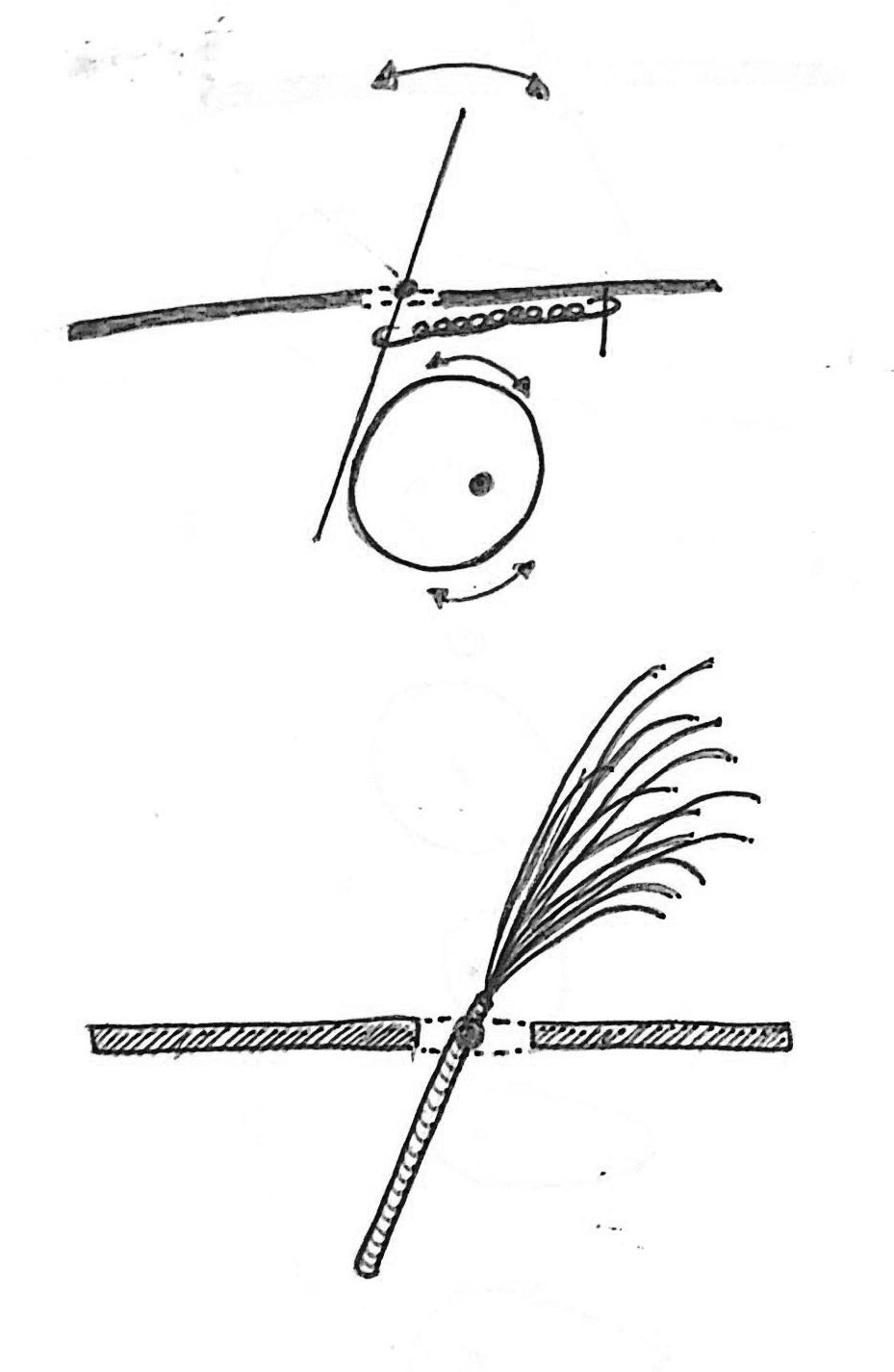
As a result of “Prototype 1“ and its unsuccessful results a smaller model was produced to fix the problems.
Problems such as tolerances, lever to cam alignment, construction sequence difficulties and complexities were identified and targeted.
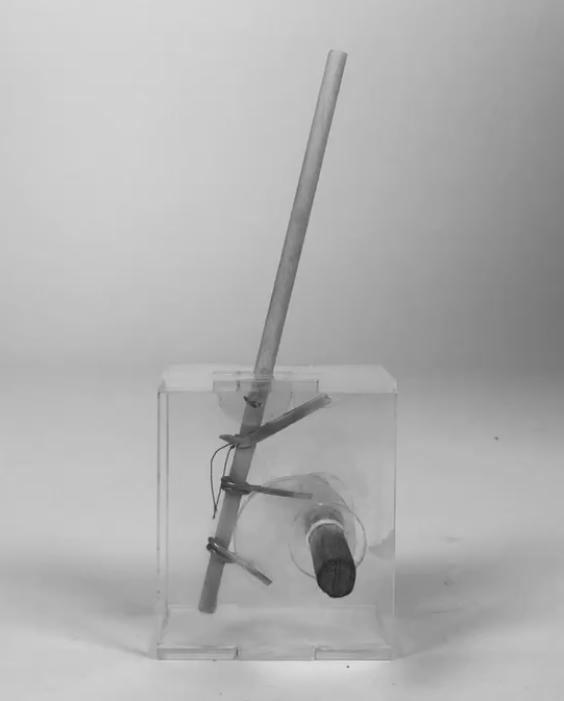
Diagrams to show movement: it was helpful to trial on a small scale the movement to identify what results in a working movement
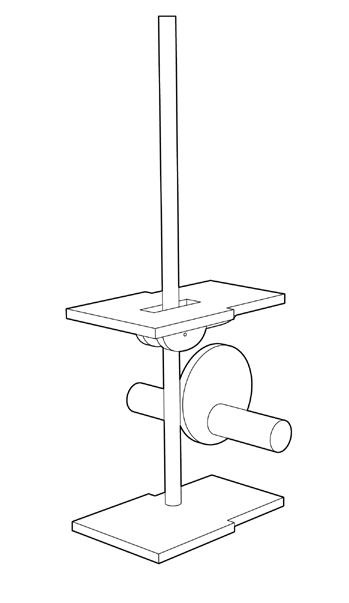
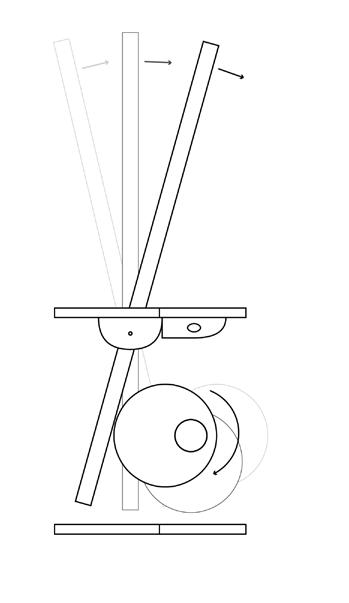
Components: Mixture of laser cut acrylic parts and timber cylinders create an interesting visual contrast.
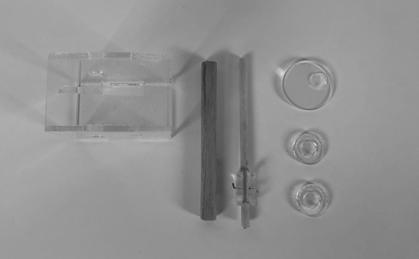
Additionally having only having a minimal number of parts reduces cutting and production times.
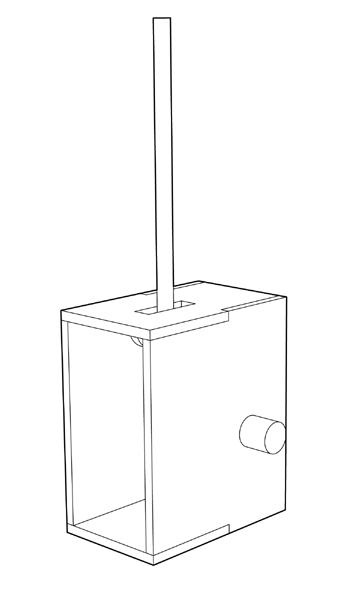
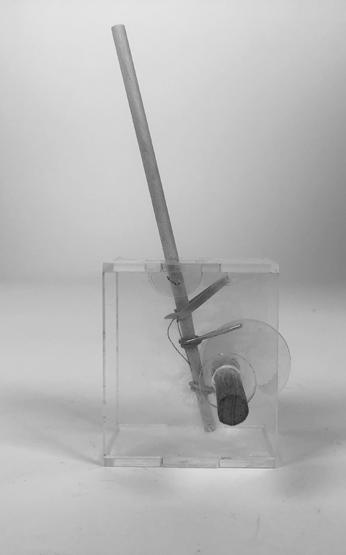
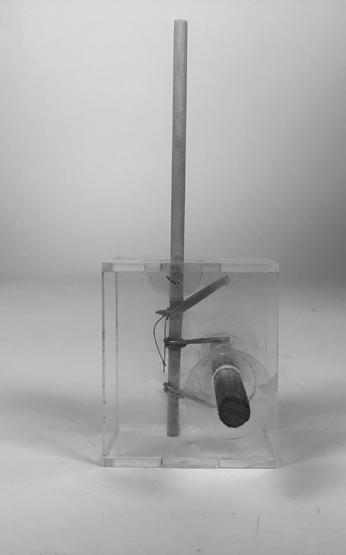
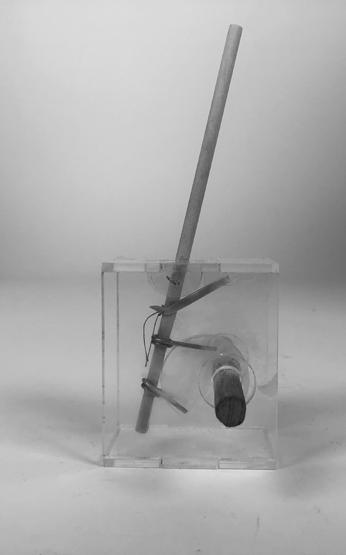
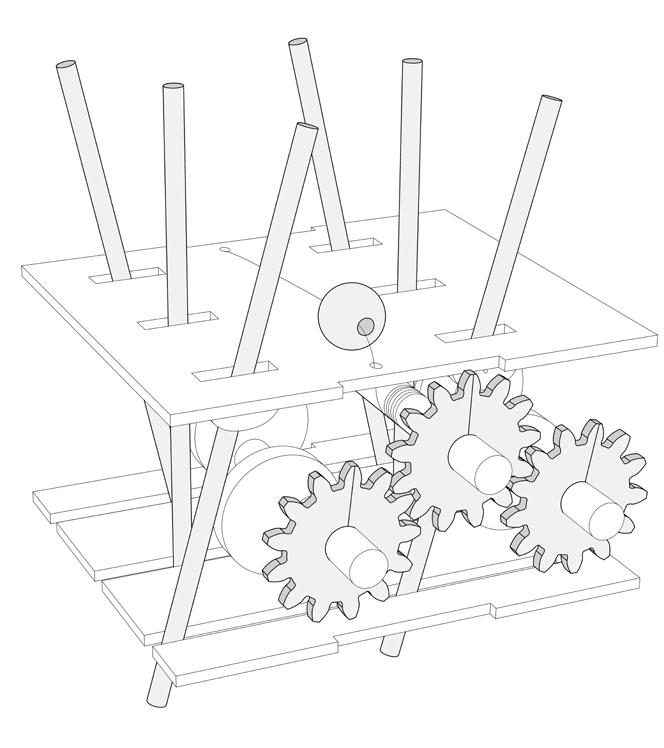
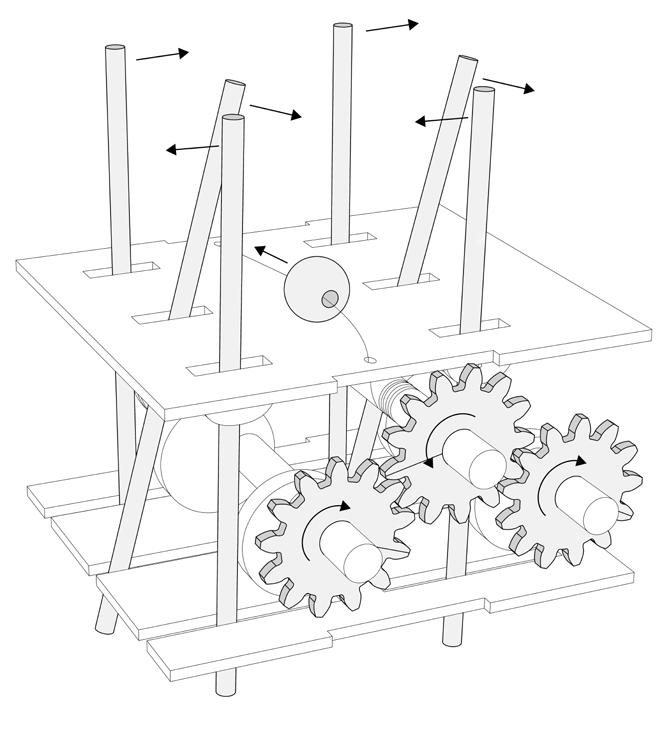
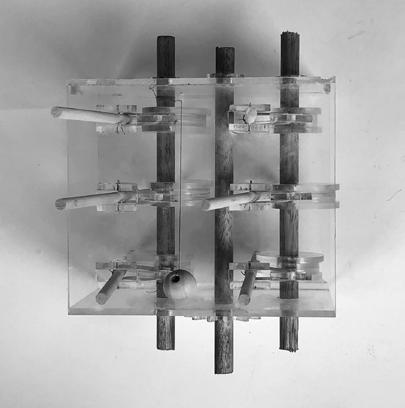

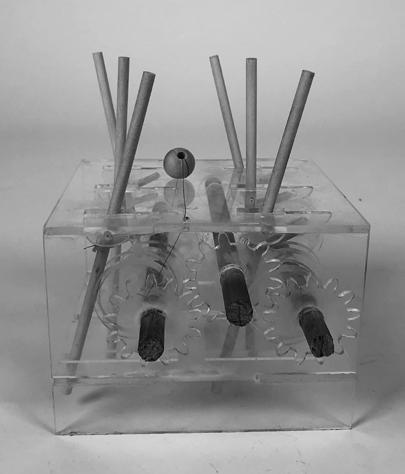
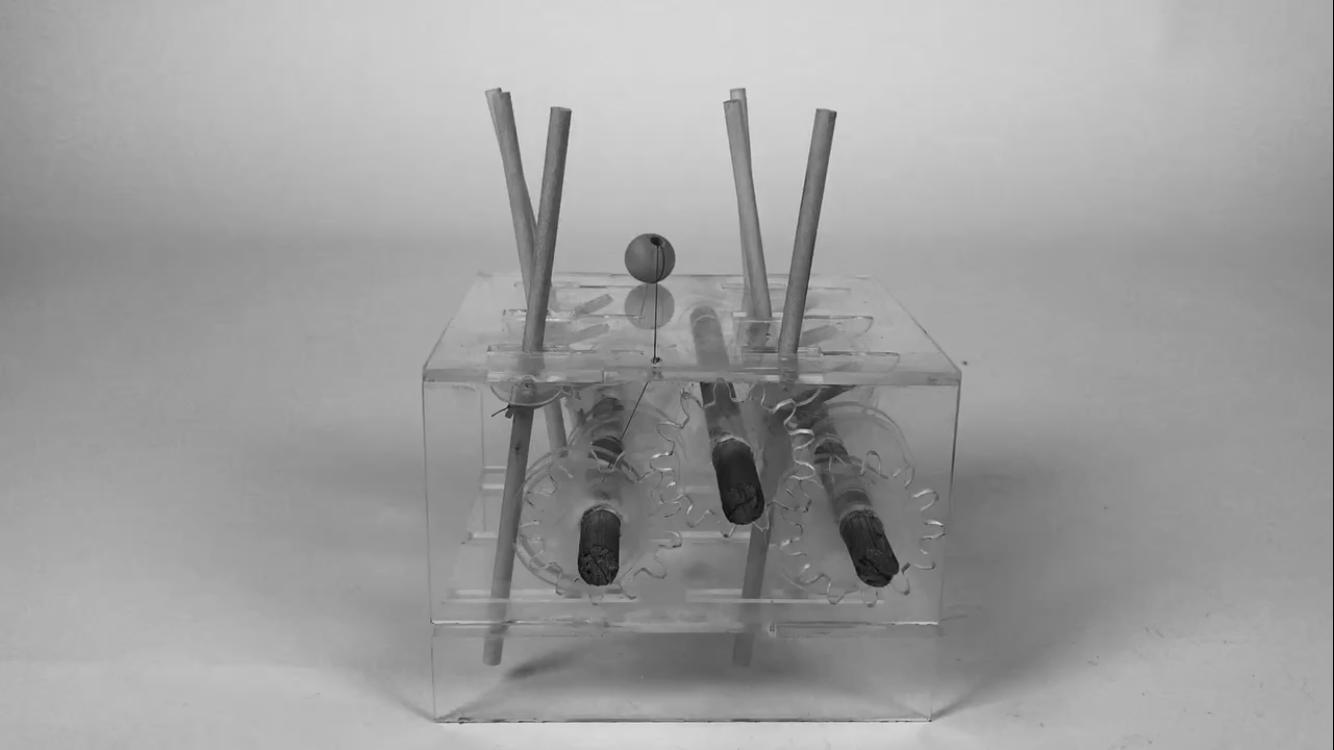
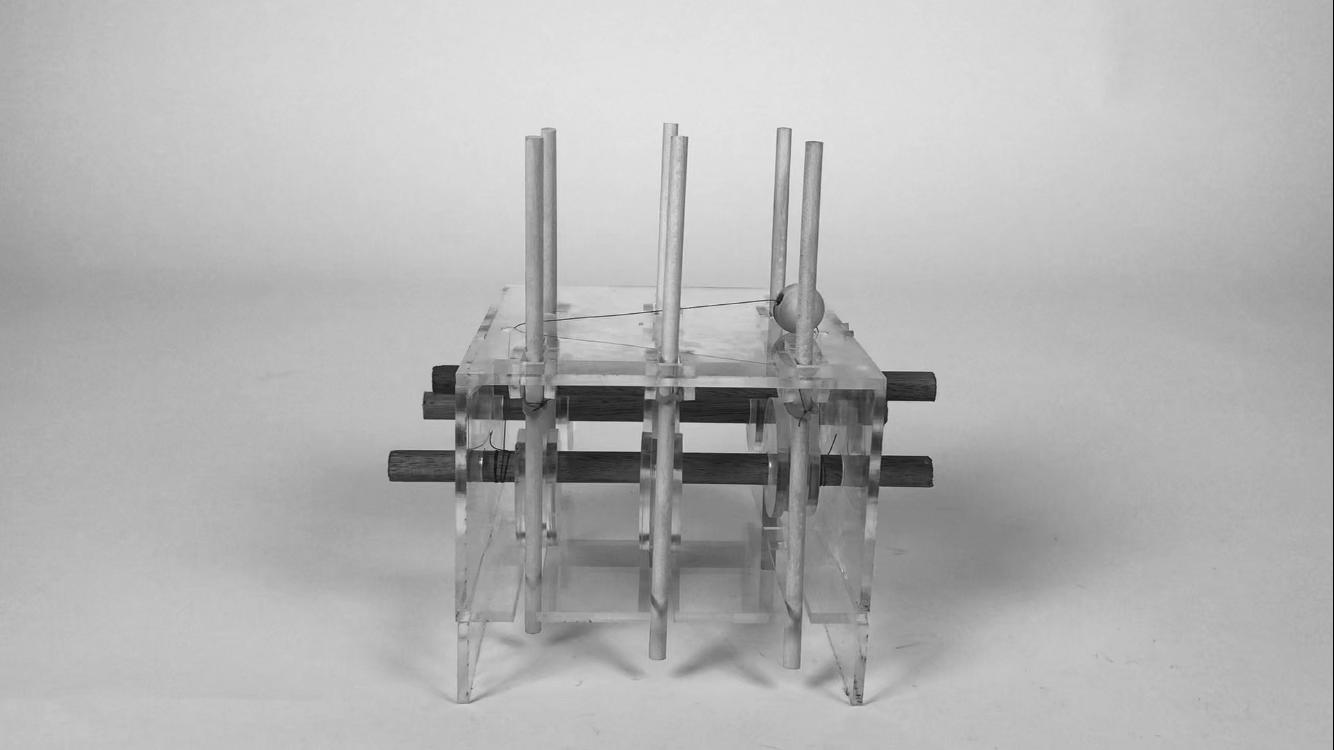
Idea that a large ball is carving the path for humanity through the black sand. The path is illuminated by light from underneath
Interesting movement similar to that of train. Could create a unique wave pattern when multiplied
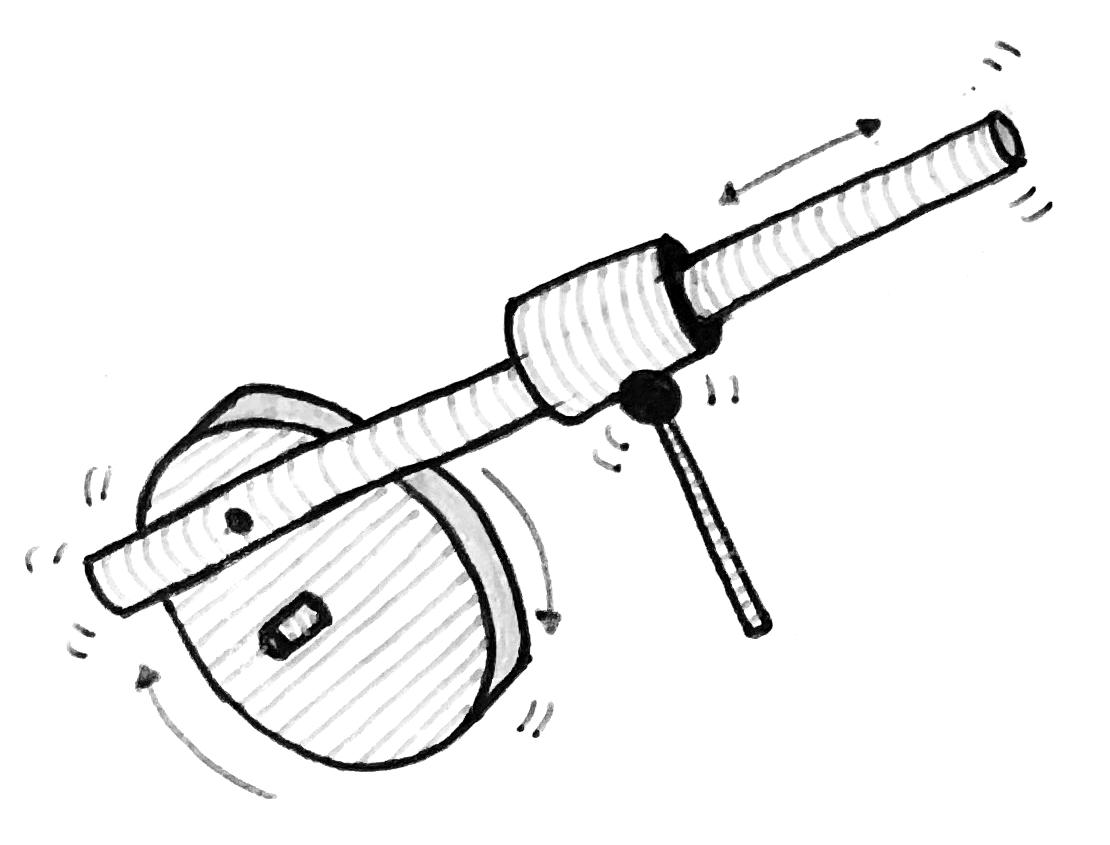
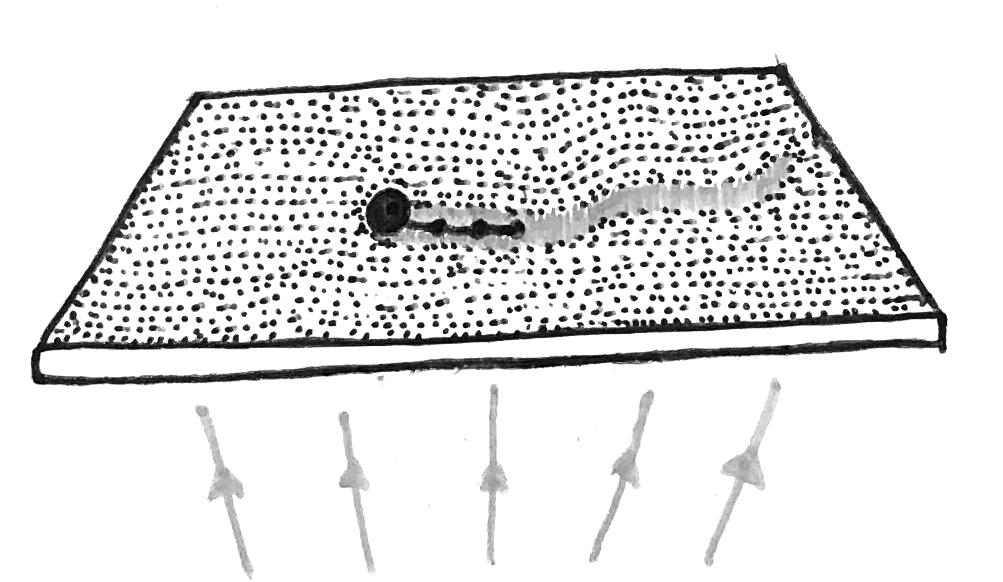
3D movement idea, could create a beautiful swirling pattern. Pivot point created by joining 4 opposed lengths of string to 1 single point on a lever
Similar to above but the levers are directly moved by the user. Weights are used to create an upright equilibrium point for each lever. Rubber bands allow movement of levers to effect the movement of neighboring levers at a delayed rate

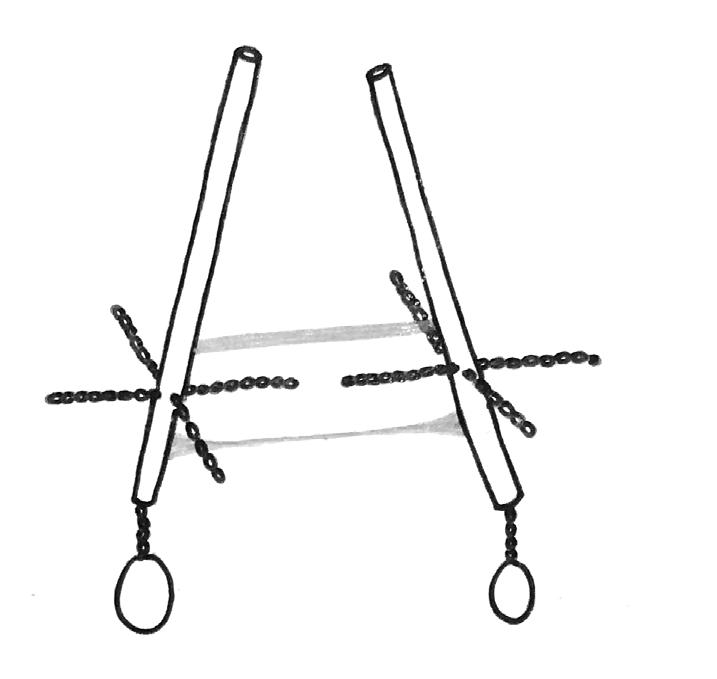
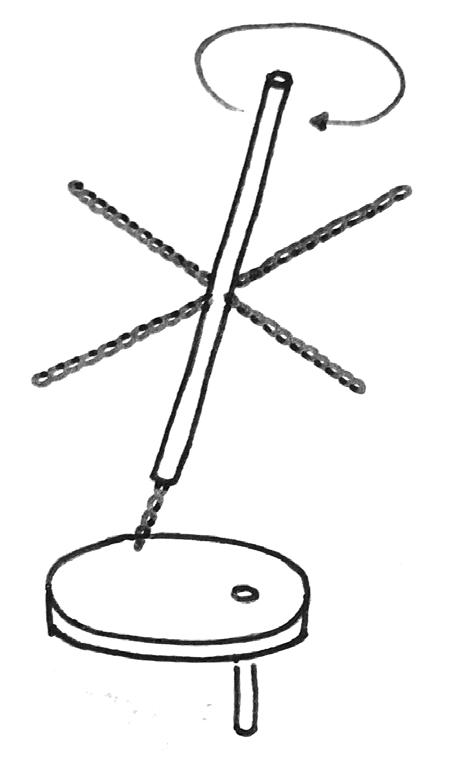
Inspiration is taken from the simple bush the way movement propagates through it, the way every twig and leaf acts as a mini spring which both pushes and pulls

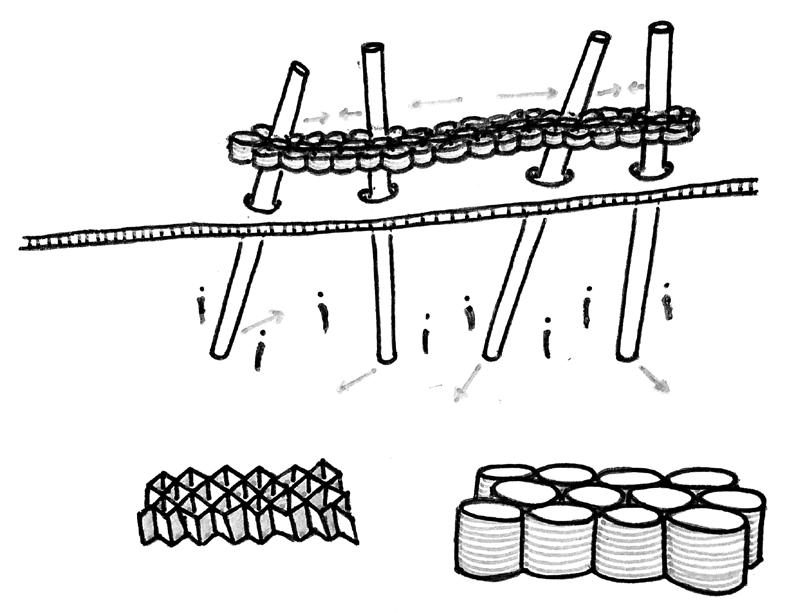
Artificial bush made from a cellular paper medium. This would allow movement of 1 lever to effect the movement of another. Getting the exact strength, size and delay of the paper medium will be a key challenge
Swirling 3 dimensional movement is created when the system and paper medium is duplicated in both the x and y axis fig 49.
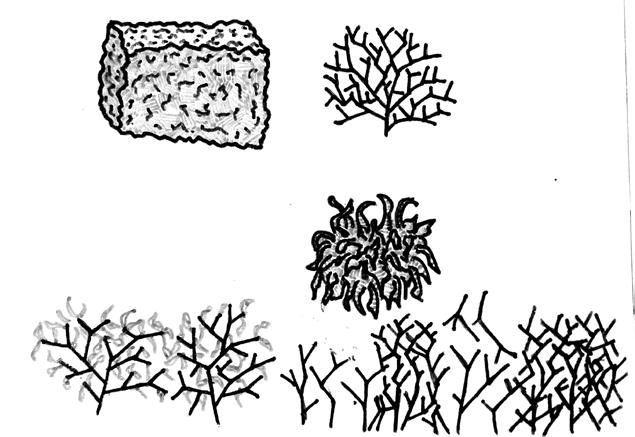
Human and light interaction should be considered fig 50.
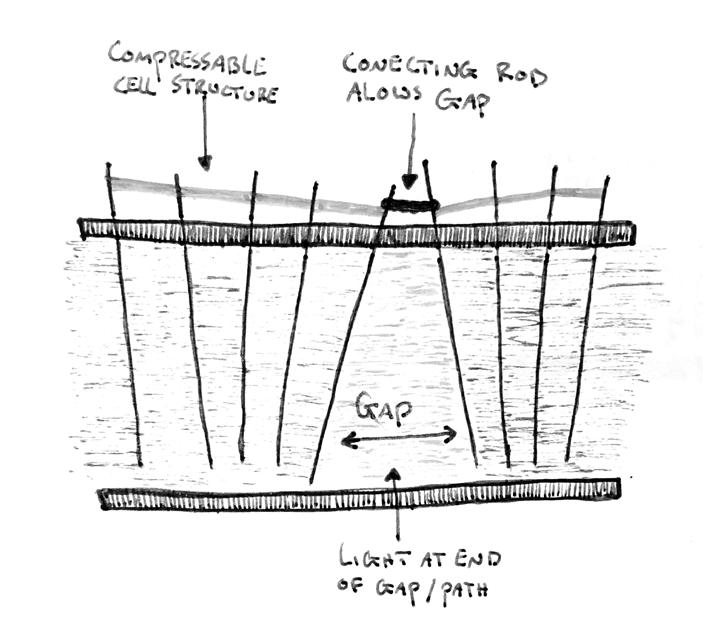
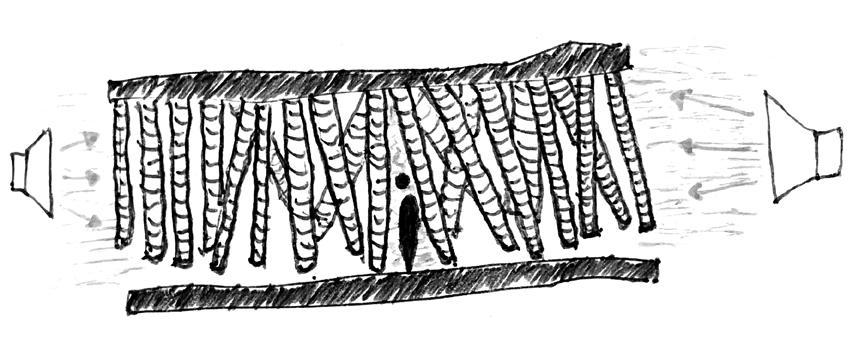
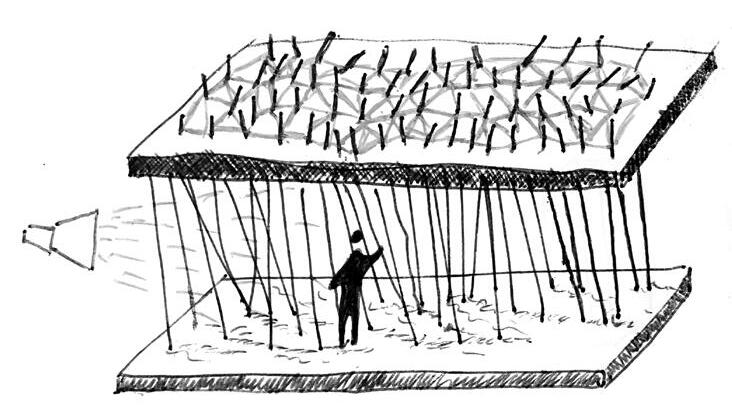
The effect of exterior light and relatively thin levers fig 51.
The effect of exterior light and relatively large levers fig 52.
The idea of having a path through the chaos in which the levers can’t touch the users
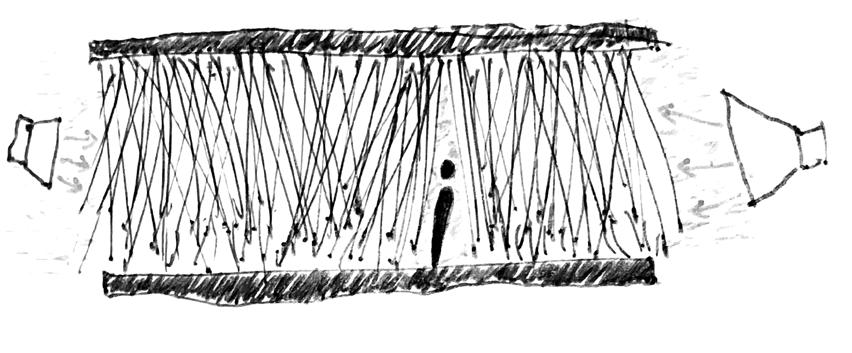
Planning how the “narrative for the machine“ diagram could potentially look like for poster 5
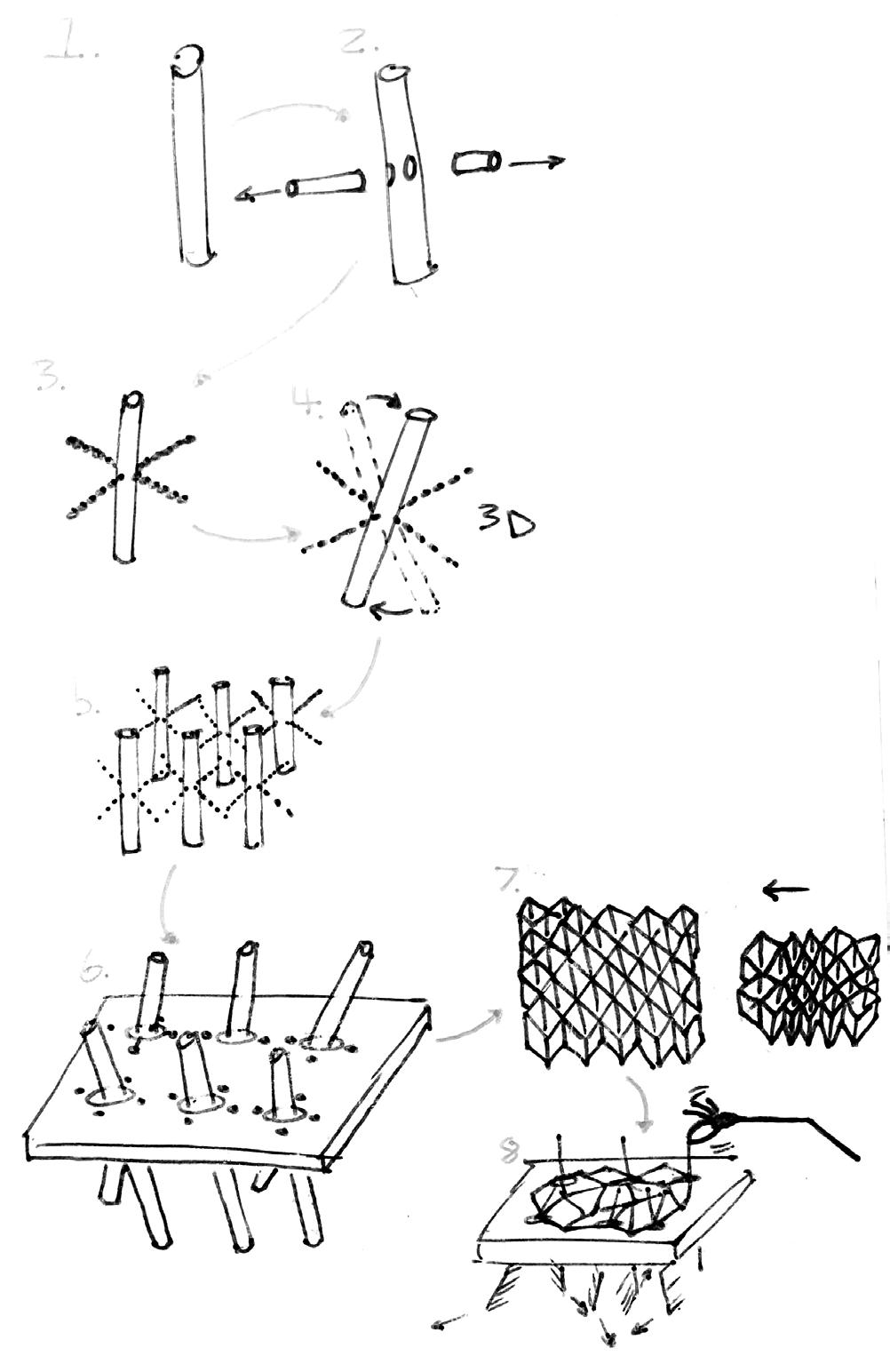
Planing out how the “different design variations“ may look like on poster 6
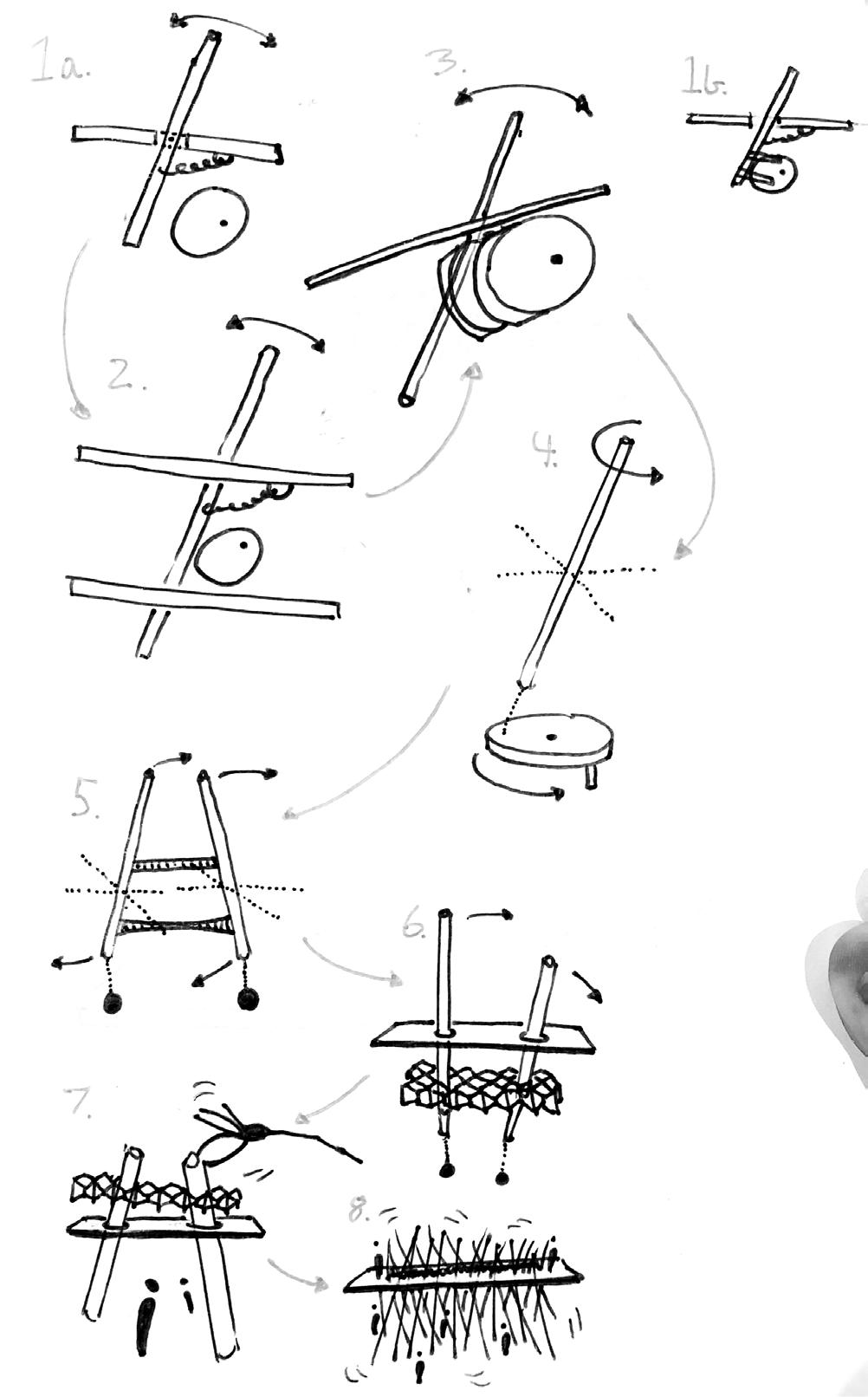
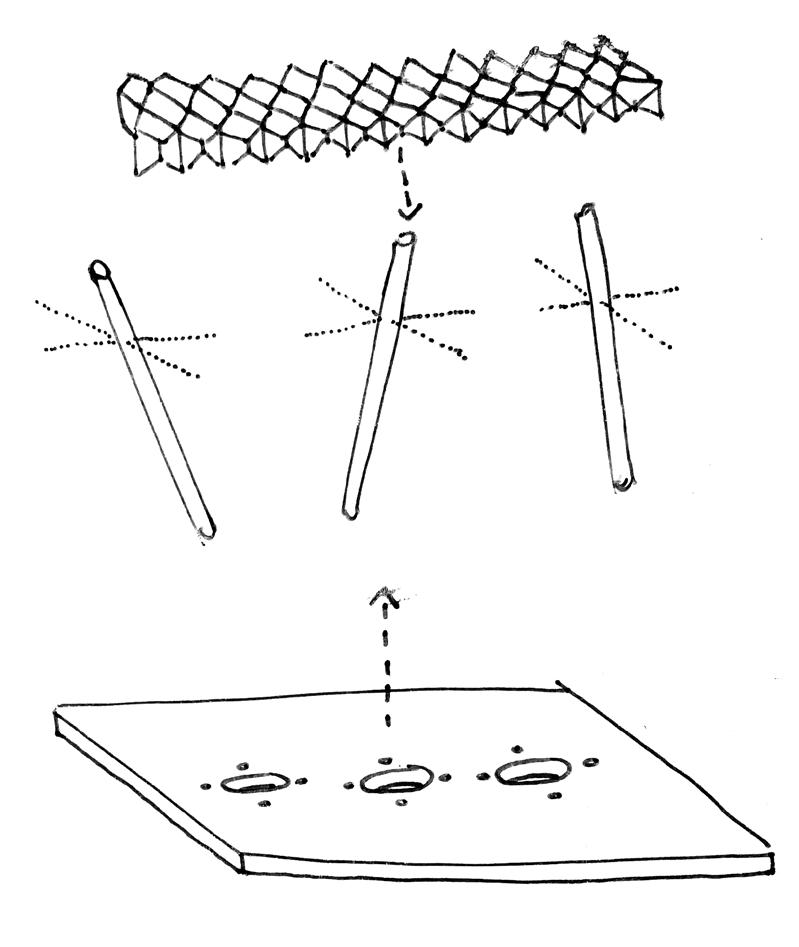
Planning out the major diagram for poster 7. “The gods playing with humanity“
